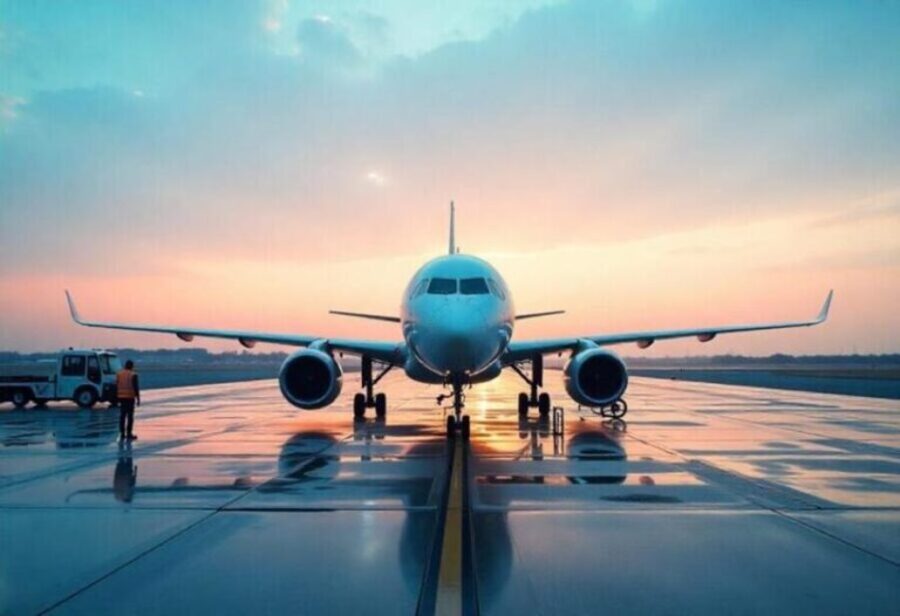Sunday, July 20th, 2025

The North African aviation industry is being transformed as strategic investments are being made to increase fleets, modernize pilot training, and gain technological independence. As demand for air travel increases, many countries across the region are investing in infrastructure, developing talent and using technology to improve their competitiveness in the aviation sector. Key actors from Algeria, Morocco and Egypt are leading this growth with a strategic eye set to become regional powers and global candidates.
Expand the fleet for enhanced connections
One North African country is making bold progress in expanding its fleet to meet growing demand in both domestic and international markets. The country's flagship airlines are taking steps to increase domestic connectivity by launching state-owned subsidiaries focused on servicing to underserved regions. To support this initiative, the carrier has added 16 new aircraft to its fleet and leased eight new aircraft featuring a combination of Boeing and Airbus models. The expansion is funded through a national investment initiative aimed at increasing air traffic by 50% over the next few years.
Fleet growth is particularly impactful in the southern regions. There, it is expected to improve access to major destinations and support both tourism and regional economic development. By increasing capacity and connectivity, carriers not only strengthen their service delivery, but also strengthen their country's role as a major aviation hub in North Africa. This growth coincides with the country's broader objectives of strengthening the aviation industry and enhancing competitiveness within regional markets.
Strengthening pilot training through global partnerships
Morocco is taking proactive steps to address the need for highly skilled pilots by building strategic partnerships with international aviation training providers. The country works with renowned aviation academies to offer a comprehensive EASA certified pilot training program. This modular training initiative includes basic courses at major regional airports and offers advanced training opportunities in Europe.
With state-of-the-art facilities and state-of-the-art training equipment, Morocco is well positioned to produce highly skilled pilots that can meet both national and regional aviation needs. The expansion of airlines such as Royal Air Maroc and Air Arabia Maroc further highlights the need for qualified aviation professionals. This partnership plays a key role in ensuring that Morocco continues its strong pool of trained pilots and strengthens its new status as an aviation hub.
Additionally, the Moroccan government has demonstrated its commitment to strengthening the sector by investing in aviation training infrastructure. As airlines continue to expand and demand for air travel continues to increase, Morocco's aviation industry is experiencing significant growth, benefiting from both domestic expertise and international collaboration.
Emphasises the independence of technology in aviation
Egypt is at the forefront of the region's aviation industry by focusing on building technological independence. In collaboration with the Arab Industrial Organization, the Egyptian Aviation Academy is developing cutting-edge flight simulators and innovative training technologies designed to meet international aviation standards. This collaboration is part of a broader strategy to reduce Egypt's reliance on imported aviation technologies and position the country as a regional leader in aviation training.
With the development of its own technology solutions, Egypt has increased its ability to train pilots and aviation professionals, ensuring the highest standards of safety and operational efficiency. The Egyptian Air Academy and Egyptian Training Division, which recently earned EASA Level D certification for the A330/A340 Simulator, are at the heart of these efforts. These initiatives will help boost Egypt's reputation as an important training hub in both the Middle East and Africa.
This technology's independence not only helps support the growth of Egyptian aviation, but also helps to build a more sustainable and competitive aviation infrastructure. Egypt has established itself as a self-sufficient leader in aviation training by reducing its dependence on foreign technology, and is ready to meet the growing demand for highly skilled aviation professionals in the region.
North African Airlines' unified growth strategy
Regionally, North African countries are working together to strengthen their aviation sector through targeted investments. Whether it's a widening fleet, cutting-edge pilot training programmes, or advances in technological capabilities, Algeria, Morocco and Egypt are paving the way for North Africa's aviation to flourish.
While the expansion of Algerian fleet is expected to significantly improve regional connectivity, Morocco's pilot training initiative is building up the skilled workforce needed to support the growing aviation sector. Meanwhile, Egypt's emphasis on technical independence is setting the stage for the country to become a key player in aviation training and safety.
While North Africa has established aviation infrastructure and workforce capabilities, these countries become essential players on the world stage. Their combined work transforms the region into a competitive, independent aviation cluster, absorbing the growing demand for air travel, and affecting the future of aviation in Africa and beyond.



